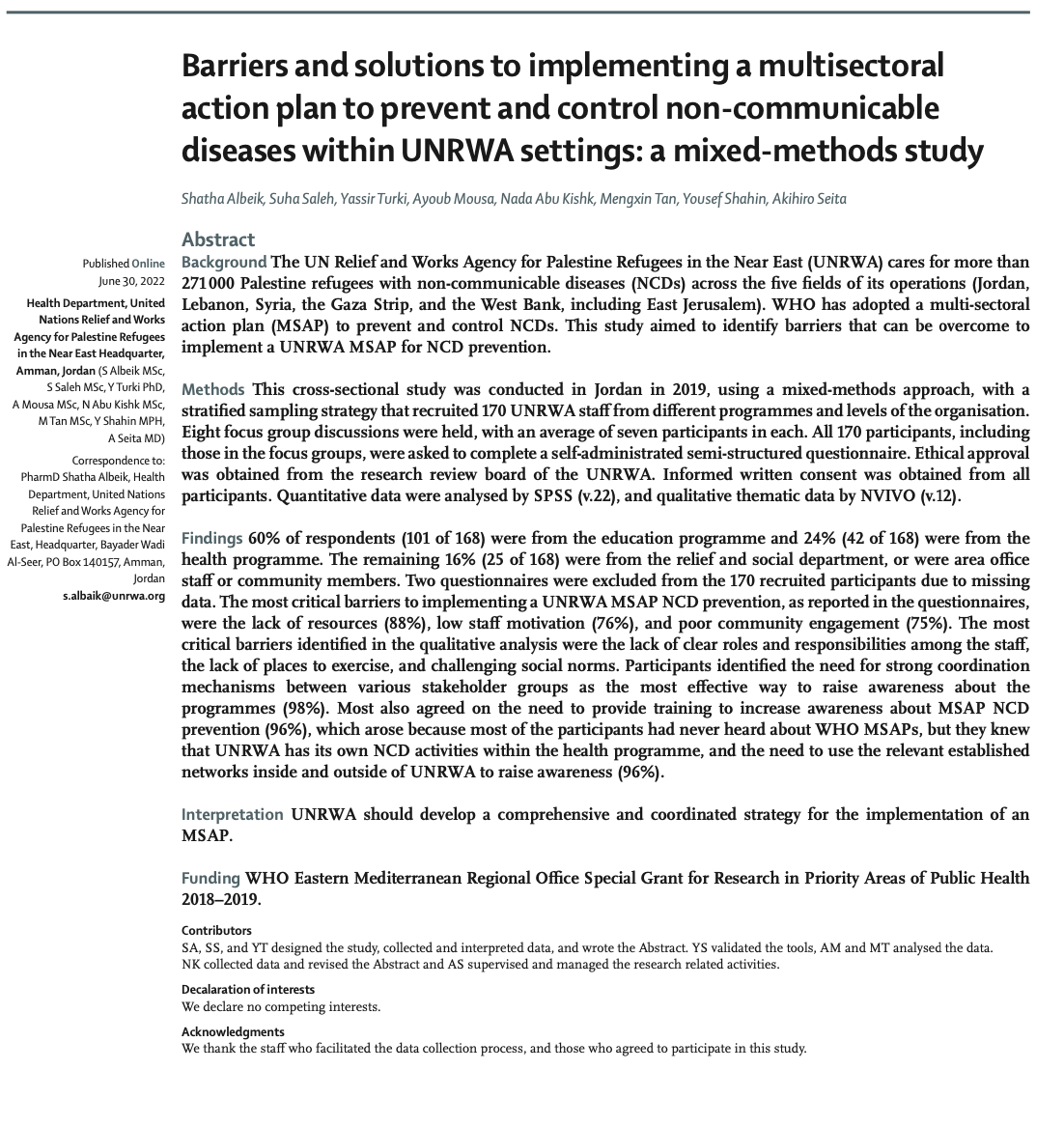Global Allergy & Airways Patient Platform
Bronchiectasis Educational Flyers
Guide
05 Feb 2026
01 Jun 2022

The UN Relief and Works Agency for Palestine Refugees in the Near East (UNRWA) cares for more than 271 000 Palestine refugees with non-communicable diseases (NCDs) across the five fields of its operations (Jordan, Lebanon, Syria, the Gaza Strip, and the West Bank, including East Jerusalem). WHO has adopted a multi-sectoral action plan (MSAP) to prevent and control NCDs. This study aimed to identify barriers that can be overcome to implement a UNRWA MSAP for NCD prevention.
This cross-sectional study was conducted in Jordan in 2019, using a mixed-methods approach, with a stratified sampling strategy that recruited 170 UNRWA staff from different programmes and levels of the organisation. Eight focus group discussions were held, with an average of seven participants in each. All 170 participants, including those in the focus groups, were asked to complete a self-administrated semi-structured questionnaire. Ethical approval was obtained from the research review board of the UNRWA. Informed written consent was obtained from all participants. Quantitative data were analysed by SPSS (v.22), and qualitative thematic data by NVIVO (v.12).
60% of respondents (101 of 168) were from the education programme and 24% (42 of 168) were from the health programme. The remaining 16% (25 of 168) were from the relief and social department, or were area office staff or community members. Two questionnaires were excluded from the 170 recruited participants due to missing data. The most critical barriers to implementing a UNRWA MSAP NCD prevention, as reported in the questionnaires, were the lack of resources (88%), low staff motivation (76%), and poor community engagement (75%). The most critical barriers identified in the qualitative analysis were the lack of clear roles and responsibilities among the staff, the lack of places to exercise, and challenging social norms. Participants identified the need for strong coordination mechanisms between various stakeholder groups as the most effective way to raise awareness about the programmes (98%). Most also agreed on the need to provide training to increase awareness about MSAP NCD prevention (96%), which arose because most of the participants had never heard about WHO MSAPs, but they knew that UNRWA has its own NCD activities within the health programme, and the need to use the relevant established networks inside and outside of UNRWA to raise awareness (96%).